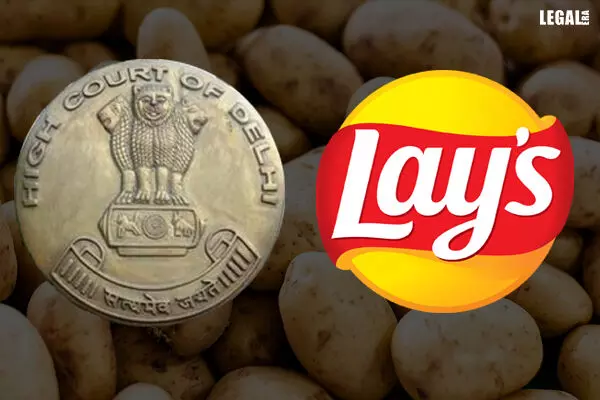- Home
- News
- Articles+
- Aerospace
- Agriculture
- Alternate Dispute Resolution
- Banking and Finance
- Bankruptcy
- Book Review
- Bribery & Corruption
- Commercial Litigation
- Competition Law
- Conference Reports
- Consumer Products
- Contract
- Corporate Governance
- Corporate Law
- Covid-19
- Cryptocurrency
- Cybersecurity
- Data Protection
- Defence
- Digital Economy
- E-commerce
- Employment Law
- Energy and Natural Resources
- Entertainment and Sports Law
- Environmental Law
- FDI
- Food and Beverage
- Health Care
- IBC Diaries
- Insurance Law
- Intellectual Property
- International Law
- Know the Law
- Labour Laws
- Litigation
- Litigation Funding
- Manufacturing
- Mergers & Acquisitions
- NFTs
- Privacy
- Private Equity
- Project Finance
- Real Estate
- Risk and Compliance
- Technology Media and Telecom
- Tributes
- Zoom In
- Take On Board
- In Focus
- Law & Policy and Regulation
- IP & Tech Era
- Viewpoint
- Arbitration & Mediation
- Tax
- Student Corner
- AI
- ESG
- Gaming
- Inclusion & Diversity
- Law Firms
- In-House
- Rankings
- E-Magazine
- Legal Era TV
- Events
- News
- Articles
- Aerospace
- Agriculture
- Alternate Dispute Resolution
- Banking and Finance
- Bankruptcy
- Book Review
- Bribery & Corruption
- Commercial Litigation
- Competition Law
- Conference Reports
- Consumer Products
- Contract
- Corporate Governance
- Corporate Law
- Covid-19
- Cryptocurrency
- Cybersecurity
- Data Protection
- Defence
- Digital Economy
- E-commerce
- Employment Law
- Energy and Natural Resources
- Entertainment and Sports Law
- Environmental Law
- FDI
- Food and Beverage
- Health Care
- IBC Diaries
- Insurance Law
- Intellectual Property
- International Law
- Know the Law
- Labour Laws
- Litigation
- Litigation Funding
- Manufacturing
- Mergers & Acquisitions
- NFTs
- Privacy
- Private Equity
- Project Finance
- Real Estate
- Risk and Compliance
- Technology Media and Telecom
- Tributes
- Zoom In
- Take On Board
- In Focus
- Law & Policy and Regulation
- IP & Tech Era
- Viewpoint
- Arbitration & Mediation
- Tax
- Student Corner
- AI
- ESG
- Gaming
- Inclusion & Diversity
- Law Firms
- In-House
- Rankings
- E-Magazine
- Legal Era TV
- Events
Delhi High Court Rejects Farmer Activist's Plea, Clears Way for PepsiCo's Potato Patent Renewal

Delhi High Court Rejects Farmer Activist's Plea, Clears Way for PepsiCo's Potato Patent Renewal
In a significant turn of events, the Delhi High Court has granted PepsiCo a major victory in the ongoing legal battle surrounding its patent on a special potato variety used in Lay's chips.
A division bench of Justices Yashwant Varma and Dharmesh Sharma set aside the judgment of a single-judge who had upheld the statutory authority's decision to revoke PepsiCo’s registration of FL 2027, paving the way for the food and beverage giant to renew its patent and potentially resume legal action against unauthorized growers of the variety.
The saga began in 2019 when PepsiCo sued several farmers from Gujarat for allegedly growing FL 2027 potatoes without its permission. This move sparked public outcry and criticism from farmer rights activists like Kavitha Kuruganti, who challenged the validity of PepsiCo's patent and accused the company of intimidating vulnerable farmers.
Kuruganti's efforts led to the revocation of FL 2027's registration in December 2021. This decision also hampered PepsiCo's application for patent renewal. Dissatisfied with these outcomes, PepsiCo approached the Delhi High Court, seeking reversal of both the registration revocation and the renewal rejection.
In a detailed judgment, a division bench of the High Court ruled in favour of PepsiCo on most key issues. While acknowledging the initial error in PepsiCo's claim about the first commercial sale date of FL 2027, the Court dismissed it as an inadvertent mistake with no substantial impact on the patent's validity. Similarly, the Court found no evidence to support Kuruganti's allegation that PepsiCo's lawsuits against farmers were vexatious or predatory.
Furthermore, the Court rejected Kuruganti's plea seeking directions to PepsiCo regarding farmer rights. Citing the specific provisions of the Protection of Plant Varieties and Farmers' Rights Act (PPVFR Act), the Court stated that PepsiCo's patent rights did not supersede farmers' existing rights under the Act.
This High Court ruling has significant implications for both PepsiCo and the broader farmer-multinational dynamic in the agricultural sector. For PepsiCo, it restores essential control over its proprietary potato variety and potentially opens the door for renewed legal action against unauthorised growers. However, the Court's emphasis on farmer rights under the PPVFR Act serves as a crucial reminder that PepsiCo's patent protection does not grant absolute dominion over FL 2027 potatoes.
PepsiCo was represented by a team led by Senior Advocate Dayan Krishnan alongside advocates Dheeraj Nair, Anjali Anchayil, and Aishna Jain. Leading the charge for Kavitha Kuruganti were Senior Advocate Colin Gonsalves and advocates Hetvi Patel and Umesh Kumar.




